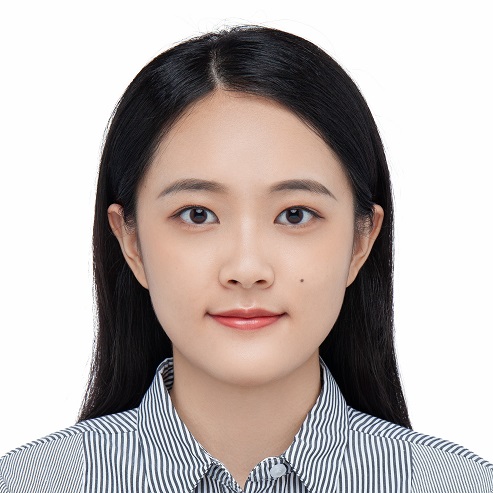Chinese Medicine Practitioner;
Research Assistant
School of Chinese Medicine,
Hong Kong Baptist University

Presenter/Author:
TIAN Jingting (1)
Other Author:
CHUA Ka Kit (1), LIU Ling (2), LEUNG Chun Chuen (3), Ma Pui Kwan (4), Tan Tak Liong (5), SHUM Hong Yuen (6), WANG Zhichun (1), AU Po Ching (1), LIN Zhixiu (7), ZHANG Shi Ping (1)
Author Affiliation:
1. Hong Kong Baptist University;
2. Guizhou University of TCM, Wan Ying Chinese Medicine Clinic;
3. School of Health and Nursing , Hong Kong Metropolitan University
4. Mercy TCM Clinic;
5. Virtue Chinese Medicine Ltd.;
6. Light of Raphael's Chinese Medicine Clinic;
7. The Chinese University of Hong Kong
Keywords:
Hong Kong; COVID-19; Severe Acute Respiratory Syndrome Coronavirus 2; SARS-CoV-2; TCM Treatment
Abstract:
Background: There are few reports on the medication pattern for using traditional Chinese medicine (TCM) treating COVID-19 in Hong Kong. This study collected and analyzed the symptoms and treatment formulas of COVID-19 patients during that period.
Objective: Explore the TCM syndrome characteristics and medication pattern of the COVID-19 infection patients in the fifth wave of the pandemic in Hong Kong in 2022.
Methods: This is a cross-sectional study. The TCM syndrome and medication analysis were carried out on the initial and final telehealth data of 205 patients with COVID-19 from February to June 2022. Inclusion criteria: patients tested positive through Rapid Antigen Test (RAT) or COVID-19 nucleic acid test and received TCM telehealth. Exclusion criteria: COVID-19 infected patients who were unsuitable for TCM telehealth, and patients tested negative at the initial telehealth section.
Results: The median age of the 205 patients was 50 (95% CI: 45-54). The average days since they tested positive on their initial section was 5.71. The primary syndrome type was the syndrome of dampness-heat in the lung. Among them, 194 cases had TCM medication records, and the top three kinds of TCM herbs were exterior-releasing medicinal (130 cases, 67.01%), cough-suppressing and panting-calming medicinal (125 cases, 64.43%), and heat-clearing medicinal (116 cases, 59.79%). There were 123 cases with final telehealth records. By chi-square test, compared with the initial section, most symptoms such as yellow phlegm, dyspnea, and muscle soreness were significantly improved (p < 0.001). The main syndrome types were the syndrome of dampness-heat in the lung and the syndrome of lung yin deficiency. There were 120 cases with TCM medication records, and the top three types of TCM herbs were cough-suppressing and panting-calming medicinal (55 cases, 45.83%), qi-yin-tonifying and blood-activating medicinal (51 cases, 42.50%), and heat-clearing medicinal (48 cases, 40.00%).
Conclusion: This study found that in the fifth wave of the COVID-19 pandemic in Hong Kong, the most common TCM treatments for COVID-19 patients in the initial telehealth section were exterior-releasing formula, cough-suppressing and phlegm-dispelling formula, and heat-clearing formula, while the proportion of exterior-releasing formula decreased in the final sections, and the proportion of tonifying and replenishing formula increased to became as the second common medication. This result is different from the previously reported medication pattern and may with reference value for guiding TCM treatment of COVID-19 patients in Hong Kong.
Reference:
WHO international standard terminologies on traditional medicine in the Western Pacific Region. (2007). World Health Organization, Western Pacific Region.
Funding Source:
This study is partially supported by a grant from Chinese Medicine Development Fund of Hong Kong (22B2/006A)
Conflict of Interests:
The author reports no conflicts of interest related to this study.
Ms. Tian Jingting is a Chinese Medicine Practitioner in Hong Kong. After graduating from Hong Kong Baptist University, she works as a research assistant in the university in Prof. Zhang Shi Ping’s team, and also continues study in the University of Hong Kong. Ms. Tian focuses on clinical research of Chinese Medicine, and is the member of Programme Committee of The 1st International Conference on Traditional Chinese Medicine Tele-healthcare.